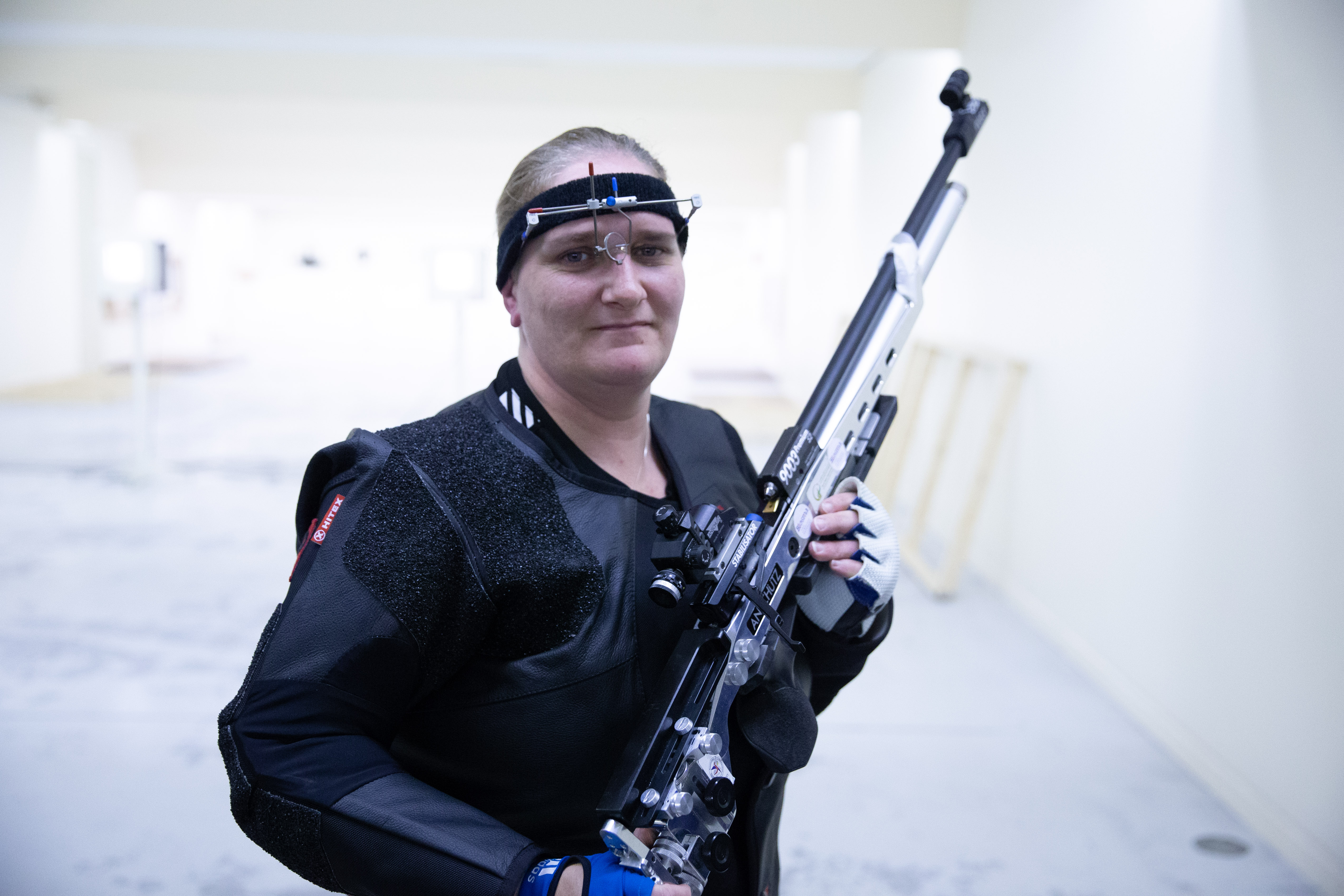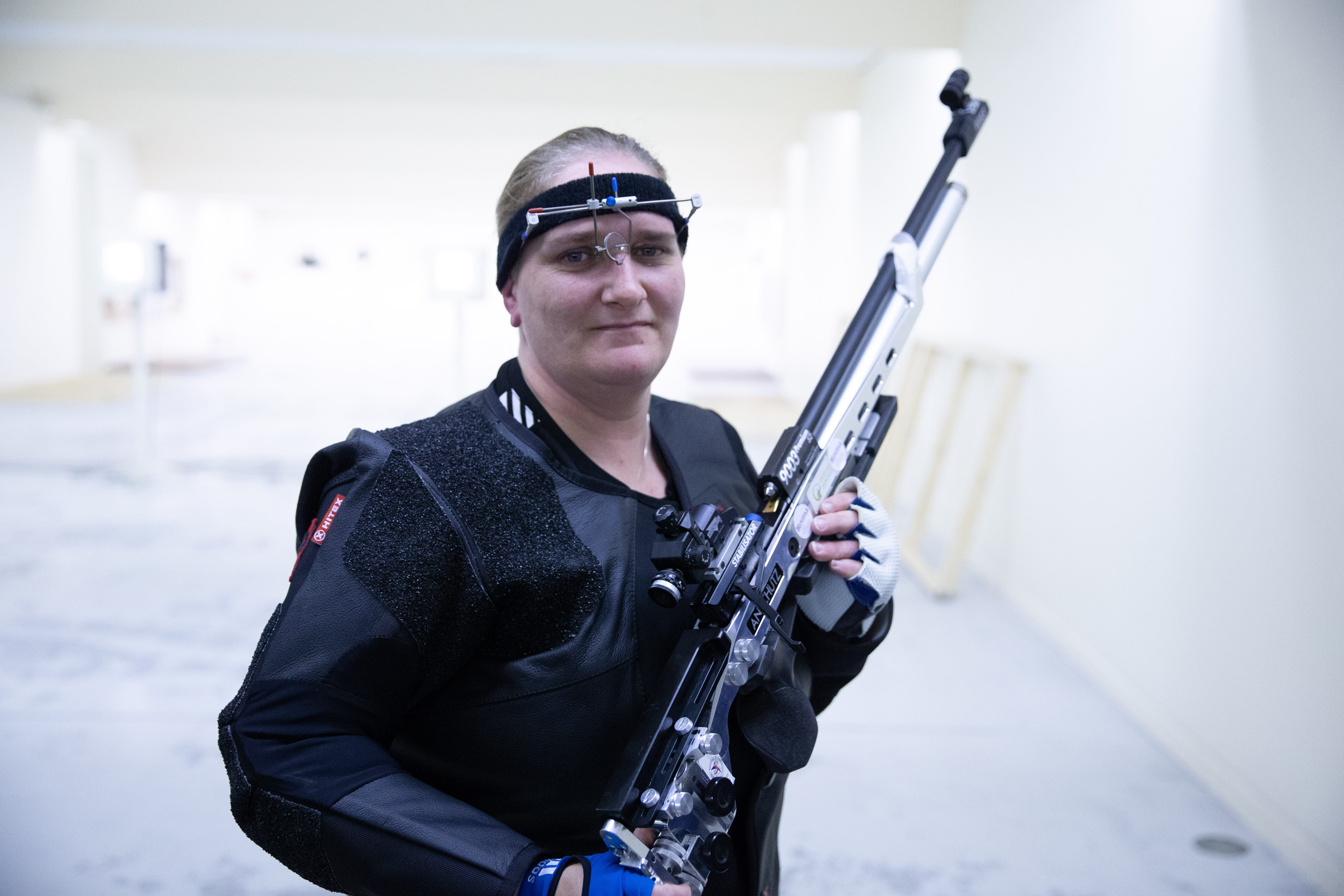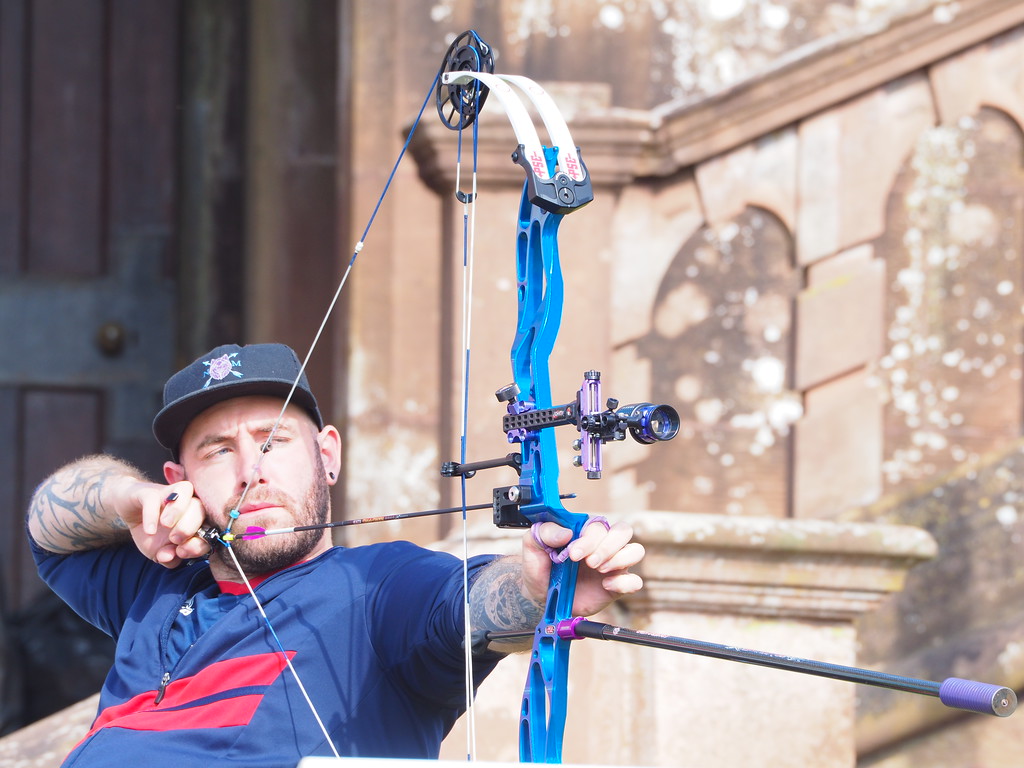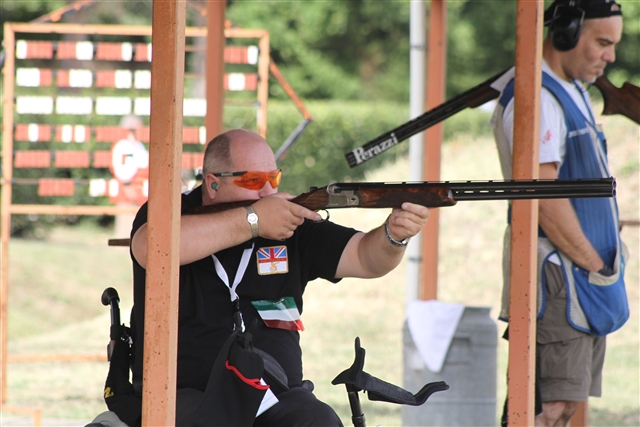Flying to Peru in June, Lesley Stewart knew she had one last chance to realise her dream of competing at the Paralympics. After years of various health issues, injuries, operations, rehab and countless hours training, it all came down to her performance in the World Shooting Para Sport World Cup.
Travelling to a red list country in South America with her sister Karen, drafted in as a makeshift coach for the week, was far from ideal. But other than the support of wife Kirsty and her family, not much has been ideal for the Perthshire shooter in recent years, so she wasn’t likely to be fazed.
Lesley won a bronze medal in Lima to book her place in Tokyo, her first Paralympics. It comes 11 years after taking up the sport and five after a bad infection in her below knee stump led to nearly a year in hospital and an emergency above knee amputation.
The road to Tokyo has been fraught with personal and sporting tragedy for the Blairgowrie shooter, it’s little wonder that describing the emotions of the moment she knew her dream would be realised is not easy.
She said: “When it was confirmed I was absolutely buzzing with joy. I can’t remember much about the whole day because my emotions were just all over the place. It was a really, really special day.
“It’s been a long road through injuries. To finally have all my hard work and dedication pay off was unreal. There was relief as well but for me to compete at the Paralympics, I can’t even think of the words to describe what that means to me.
“My wife Kirsty has been my rock. She’s held me up on my bad days and been there to celebrate my good days. As an athlete you make sacrifices but I don’t think people understand that your family have to make sacrifices too. All my family have sacrificed to help me chase my dream.
“I served in the military, I’ve had the chance to serve my country and now I’ve got the chance to represent my country and that is such a huge honour.
“Any athlete dreams of making the podium. I would love that to be the case, but in general I’d like to leave the Game a stronger person. Not physically but mentally, build my confidence back up. I’ve had years of injury so my goal is to leave the Games a stronger individual.”

Life was very different for Lesley in 2004, sport wasn’t looking like it would be part of her future. She was serving in the military police in the army, just after completing a tour of Iraq the previous year. But a pulled muscle in her back during a routine combat fitness test would change her life forever.
Lesley explained: “All I did was pull a muscle in my back and within a week my left ankle had fully turned inwards. I was in so much pain and nobody could understand what the problem was because I hadn’t hurt my leg. It was my back.
“After a lot of investigating it was eventually discovered that I had dystonia, which basically means that when I pulled the muscle in my back my brain malfunctioned at the same time and it sent the signal to the wrong part of the body. Instead of the back going into spasm, the ankle went into permanent spasm.
“That wouldn’t let the ankle release. I had loads of operations to try to save the ankle but unfortunately, they all failed. I had a below knee amputation.
“But when they took off the ankle the dystonia moved to the knee joint, the brain was saying I’m sending this signal and nothing is happening so it automatically sent it to the next joint which was the knee joint so my knee got disformed as well.
“The dystonia was so severe that it was decided I needed a life-or-death brain operation. That was called deep brain stimulation. Basically there’s wires fused into certain parts of the brain which was then attached to a box in my chest, that puts electric currents through the brain and it acts like a block. The brain still sends the faulty signals but it doesn’t reach any part of my body.
“Eventually my knee released and I was able to start rehab.”
Lesley’s rehab was done at Military rehabilitation unit, Headley Court, where she first took up shooting as a sport and quickly shone.
It was looking like Lesley would compete at the Rio 2016 Paralympics. But with a couple of shoots left to try to qualify, a bad infection in her below knee stump led to nearly a year in hospital and an above knee amputation.
Make or break
Lesley had worked her way up the shooting rankings and won a European silver medal, but she wasn’t able to return to shooting until 2019. Forced to start again at the bottom, she wondered if it was all worth it.
Lesley said: “I went to a competition in Germany in 2019 and that was going to be make or break for my shooting career.
"From that event I was either going to decide that was it finished, or I’m giving this another try.
“I absolutely loved it and I realised how much I missed it. To this day I’m thankful I made that decision.”
The support of her family and the love of her sport has pulled Lesley through some dark times. She credits shooting with helping her physical and mental recovery.
She said: “Leaving the military through a medical discharge is crushing. You’re lost for a while and you wonder what you’re going to do and how you will manage, especially if you leave with a disability that you didn’t go in with.
“For me sport has been my rehab and my mental rehab. Being part of the shooting group feels like being back in the military because it’s a small group. When I put the GB uniform on to compete, I feel the same pride as when I put my military uniform on.
“Sport has been my saviour in a way.”
Lesley has also been aided on her road to Tokyo by staff at the sportscotland institute of sport and Scottish Target Shooting. She works closely with sportscotland Physical Preparation Coach Luke Birmingham, sportscotland Performance Lifestyle Advisor Paula Jarvie and Scottish Target Shooting Performance Coach Andrew Ross.
Blesma, a charity dedicated to assisting ex-service men and women who have suffered life-changing limb loss, have supported Lesley since her first diagnosis and helped fund her trip to Lima to qualify for Tokyo.
Lesley added: “sportscotland have been absolutely amazing. I do a lot of work with Scottish Target Shooting. The support they give is world class, I have a good relationship with my coach Andrew and his coaching is first class.
“I do a lot of work with Paula in the performance lifestyle team at the sportscotland institute of sport. It’s different things to get me in the right mindset, I now write journals, I keep a note of everything. I track my sleep and mood, it’s not one specific thing. It looks at everything possible to make me feel my best when I’m competing.
“I have my own strength and conditioning coach, my own nutritionist, physios and doctors so the support I receive is world class. They have given me everything I need to go to Tokyo and put in a really good performance.
“Blesma have also been incredible. They’ve supported me pretty much from my initial diagnosis and discharge until now.”
Paula Jarvie, sportscotland Performance Lifestyle Adviser, said: “It’s been a real privilege to support Lesley on this whirlwind journey to Tokyo. Continually constructing positive outcomes from the number of setbacks and challenges she has faced, Lesley embodies the true essence of resilience and perseverance in both her sport and her life. I’m constantly amazed by her strength of character, focus and dedication toward achieving her dreams.”
Jennifer Ross, 5-time Commonwealth Games medal winner and Scottish Target Shooting Performance & Pathways Manager, said:
“Everyone here at STS is so proud of Lesley, not only for what she has achieved since her return to the sport, but the manner in which she has achieved it.
“Every athlete competing in Tokyo will have put in an enormous amount of hard work, discipline and sacrifice, but it’s the way Lesley conducts herself through those challenges – both on range and off – that highlight just what a remarkable individual she is. As a former athlete, I know what it takes to perform at this level and Lesley has it all in spades. It is a joy and a privilege to work with her and we wish her all the very best out in Tokyo.”




